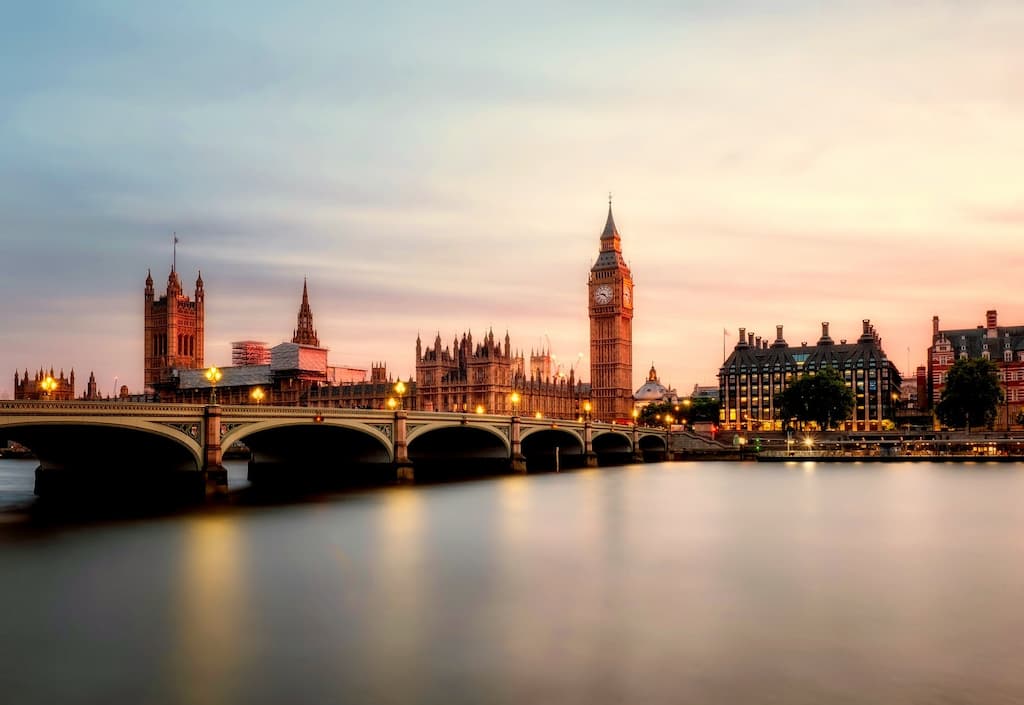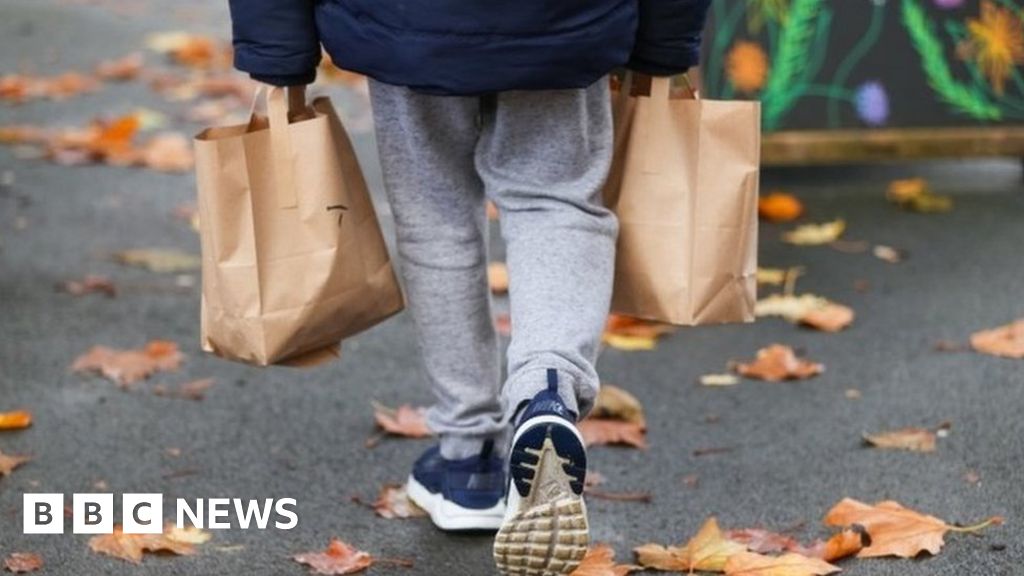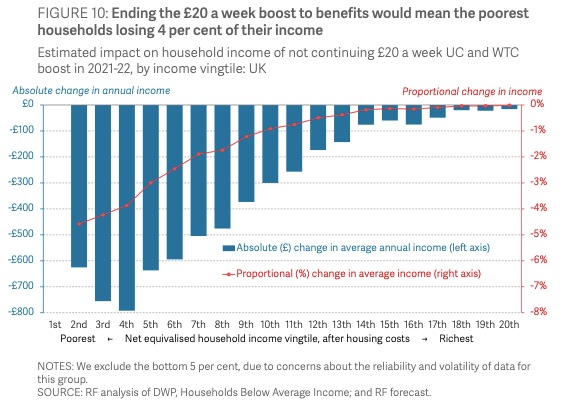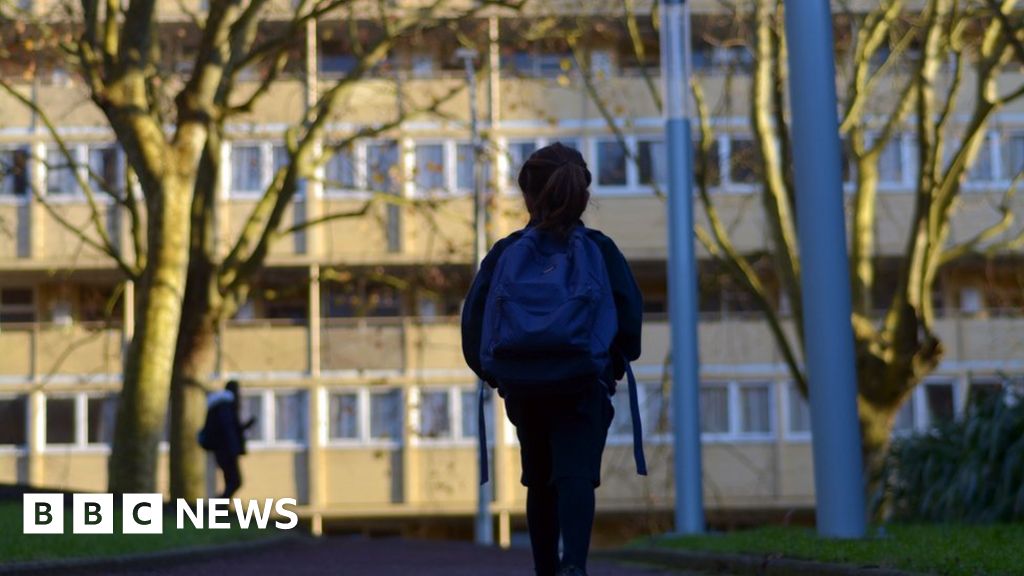The £20 extra a week in welfare is all that’s keeping many from poverty, MPs must fight to make it permanent.

by Jamie O’Dell
In a parliamentary vote last night, only six Conservative MPs supported a non-binding resolution calling for the extension of the £20 a week uplift to welfare payments that, for hundreds of thousands, are the only thing staving of falling into relative or absolute poverty. The rest, including the MP for Stroud Siobhan Baillie, refused to support, or even turn up and debate. For many who are unaffected by this, however, this is news that may seem rather abstract, detached from the reality faced by those for whom this matters, and difficult to understand it in material terms.
When the coronavirus crisis hit, the economic support the government introduced prevented the unprecedented collapse in GDP that we have witnessed from translating into a living standards disaster. This is not to say that the response has been perfect, anything but, but the importance of mechanisms such as the Job Retention Scheme is hard to overstate.
The Job Retention Scheme is not the only significant measure put in place, however, with other measures continuing to be of significant importance for many households. Chief amongst these has been the £20 a week increase on Universal Credit (UC) and Working Tax Credits (WTC), which amounts to £1,000 per year. These were introduced as a temporary emergency measure in March 2020 and have been hugely significant in topping up people’s incomes or supporting those not in work. To provide an idea of the impact of this locally, between August 2019 and August 2020, the number of households receiving universal credit in the Stroud area increased from 2,547 to 5,535.
This uplift has been described as ‘a lifeline’ to the 5.5 million families who receive the standard UC allowance, the difference between having heating or no heating and/or eating or not eating. Research published today from the Resolution Foundation has predicted that the removal of the £20 uplift in 2021-22, combined with rising unemployment, will lead to a further 1.2 million people falling into relative poverty, 400,000 of whom are children.

This would be the biggest year-on-year rise in poverty rates since the 1980s, but, unlike the 1980s, absolute poverty, rather than just relative poverty, is also predicted to rise. Whilst these are numbers that are so vast they may seem abstract, the thought of 400,000 more children living in poverty, at a time where our national consciousness of child food poverty is increasing, simply has to stir us as the public, and our elected politicians, into action.
As the table below demonstrates, it is the very poorest households who benefit the most from this uplift and thus the very poorest households who will be hit hardest by its absence. These are the same households who have been spending more and often borrowing more, in direct contrast to higher-income households, to get by throughout this pandemic.

Despite this, Chancellor Rishi Sunak is seeking to find a way to return to pre-pandemic levels whilst senior figures in the government, such as Foreign Secretary Dominic Raab have stated that this uplift remains a temporary measure.

It is important to remember that this remains a live issue both nationally and within government, with Johnson, Sunak and Therese Coffey, the Department of Work and Pensions (DWP) Secretary meeting last Friday to discuss the issue. Given the potentially devastating impacts of removing the uplift being so apparent, the DWP is holding the position of basic common sense, in contrast to the Treasury, in looking to secure an extension. The government’s recent record of performing U-turns every second week in response to public pressure is another source of hope that, through awareness-raising and pressure, the uplift can be maintained.
It is in this context that we must judge the 357 Conservative MPs, Baillie included, who failed to find the courage, or even the time, to take a public stand and statement, for the sake of the 1.2 million people, against removing the £20 a week uplift. If six of them had the courage to do so, what does that say about the rest of them?
When I was knocking on doors around Stroud during the 2019 election, asking people what their main concerns were, Universal Credit came up time and time again. We can see in the research quoted the scale of added devastation that removing this uplift will cause. This is not an issue we can be silent upon.
We contacted Siobhan Baillie’s office for comment on the vote yesterday morning and we have yet to receive a response. We will update this article accordingly if we receive one.
By Jamie O’Dell
In a parliamentary vote last night, only six Conservative MPs supported a non-binding resolution calling for the extension of the £20 a week uplift to welfare payments that, for hundreds of thousands, are the only thing staving of falling into relative or absolute poverty. The rest, including the MP for Stroud Siobhan Baillie, refused to support, or even turn up and debate. For many who are unaffected by this, however, this is news that may seem rather abstract, detached from the reality faced by those for whom this matters, and difficult to understand it in material terms.
When the coronavirus crisis hit, the economic support the government introduced prevented the unprecedented collapse in GDP that we have witnessed from translating into a living standards disaster. This is not to say that the response has been perfect, anything but, but the importance of mechanisms such as the Job Retention Scheme is hard to overstate.
The Job Retention Scheme is not the only significant measure put in place, however, with other measures continuing to be of significant importance for many households. Chief amongst these has been the £20 a week increase on Universal Credit (UC) and Working Tax Credits (WTC), which amounts to £1,000 per year. These were introduced as a temporary emergency measure in March 2020 and have been hugely significant in topping up people’s incomes or supporting those not in work. To provide an idea of the impact of this locally, between August 2019 and August 2020, the number of households receiving universal credit in the Stroud area increased from 2,547 to 5,535.
This uplift has been described as ‘a lifeline’ to the 5.5 million families who receive the standard UC allowance, the difference between having heating or no heating and/or eating or not eating. Research published today from the Resolution Foundation has predicted that the removal of the £20 uplift in 2021-22, combined with rising unemployment, will lead to a further 1.2 million people falling into relative poverty, 400,000 of whom are children.
This would be the biggest year-on-year rise in poverty rates since the 1980s, but, unlike the 1980s, absolute poverty, rather than just relative poverty, is also predicted to rise. Whilst these are numbers that are so vast they may seem abstract, the thought of 400,000 more children living in poverty, at a time where our national consciousness of child food poverty is increasing, simply has to stir us as the public, and our elected politicians, into action.
As the table below demonstrates, it is the very poorest households who benefit the most from this uplift and thus the very poorest households who will be hit hardest by its absence. These are the same households who have been spending more and often borrowing more, in direct contrast to higher-income households, to get by throughout this pandemic.
Research from the Resolution Foundation demonstrating the impact of ending the uplift (source)
Despite this, Chancellor Rishi Sunak is seeking to find a way to return to pre-pandemic levels whilst senior figures in the government, such as Foreign Secretary Dominic Raab have stated that this uplift remains a temporary measure.
It is important to remember that this remains a live issue both nationally and within government, with Johnson, Sunak and Therese Coffey, the Department of Work and Pensions (DWP) Secretary meeting last Friday to discuss the issue. Given the potentially devastating impacts of removing the uplift being so apparent, the DWP is holding the position of basic common sense, in contrast to the Treasury, in looking to secure an extension. The government’s recent record of performing U-turns every second week in response to public pressure is another source of hope that, through awareness-raising and pressure, the uplift can be maintained.
As this vote is a non-binding resolution tabled by the Labour Party, there will be those that question the significance of this vote or even dismiss it as a ‘political stunt’. This argument ignores the point made above, however, in that governments respond to public pressure. As we have seen with the recurrent free school meals scandals, in the case of this government, that pressure is often the difference between doing the right thing and doing the cheap thing.
It is in this context that we must judge the 357 Conservative MPs, Baillie included, who failed to find the courage, or even the time, to take a public stand and statement, for the sake of the 1.2 million people, against removing the £20 a week uplift. If six of them had the courage to do so, what does that say about the rest of them?
When I was knocking on doors around Stroud during the 2019 election, asking people what their main concerns were, Universal Credit came up time and time again. We can see in the research quoted the scale of added devastation that removing this uplift will cause. This is not an issue we can be silent upon.
We contacted Siobhan Baillie’s office for comment on the vote yesterday morning and we have yet to receive a response. We will update this article accordingly if we receive one.


Member discussion